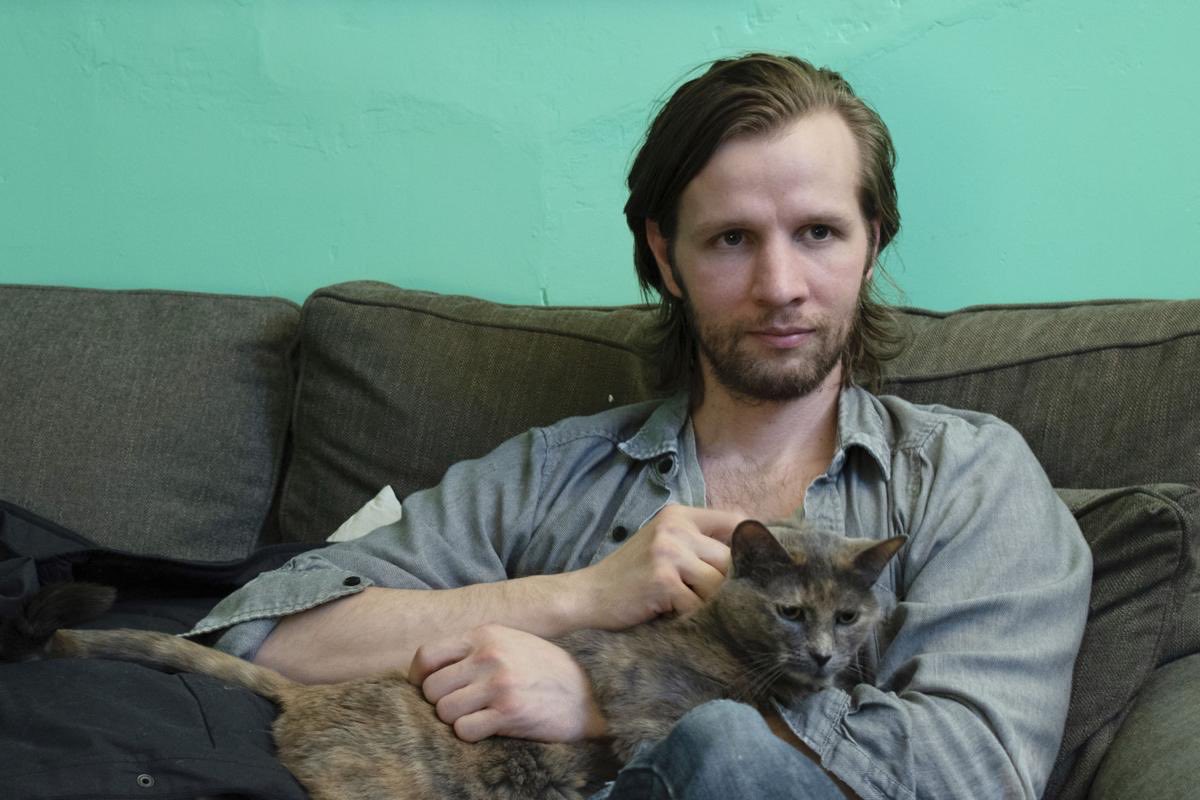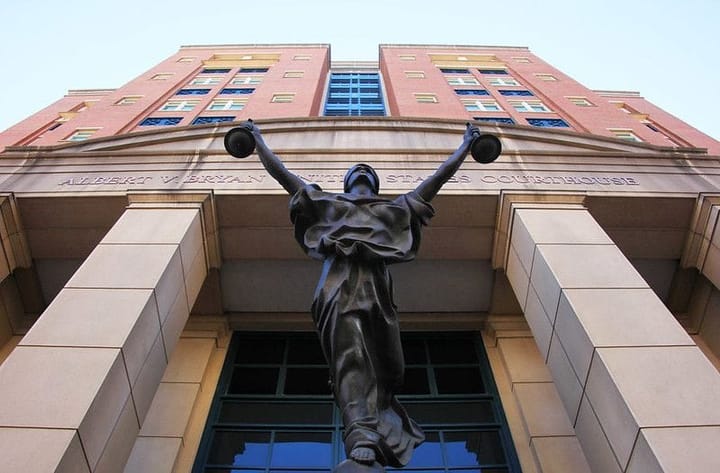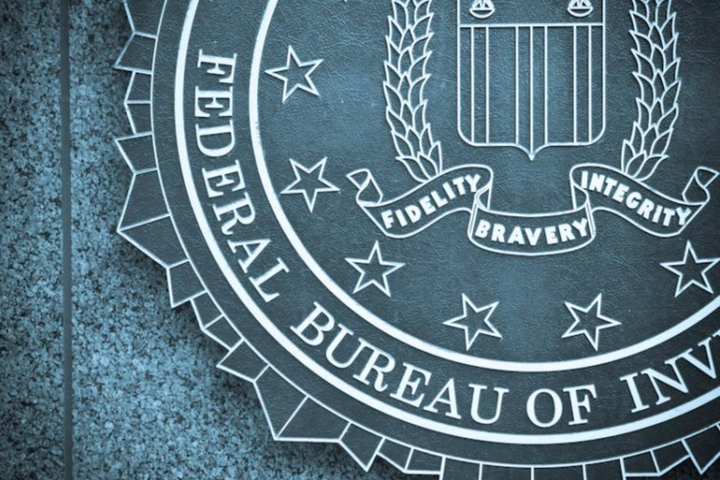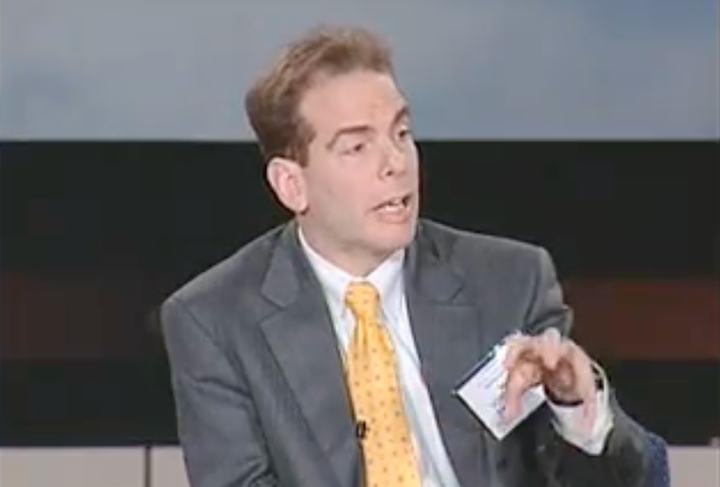The US Government's Jailing Of A Drone Whistleblower
The U.S. government deprived Daniel Hale of the ability to tie up loose ends and prepare for incarceration before sentencing in July.

When the United States government had drone whistleblower Daniel Hale arrested and the judge revoked his bail, they deprived him of the ability to tie up loose ends and prepare for incarceration before his sentencing in July.
It meant Hale could not say goodbye to friends or family with one final meal before going off to federal prison. It meant he could not appropriately coordinate with his roommates to store his belongings. It meant he could not arrange a proper home for his cat, Leila.
But what happened to Hale is part of a stark trend in the government’s war on national security whistleblowers that has intensified over the past decade, especially against lower-level employees or contractors.
Hale pled guilty on March 31 to one charge of violating the Espionage Act, when he provided documents to Intercept co-founder Jeremy Scahill and anonymously wrote a chapter in Scahill’s book, The Assassination Complex: Inside the Government’s Secret Drone Warfare Program. He was taken into custody and sent to the William G. Truesdale Detention Center in Alexandria, Virginia, on April 28.
A therapist from pretrial and probation services, who was assigned to Hale, violated patient confidentiality and shared details about what he allegedly said during a session.
“Daniel was called into the probation office for what he thought was a routine check-in,” recalled Jesselyn Radack, the head of the Whistleblower and Source Protection Program (WHISPeR) at ExposeFacts who has publicly represented Hale. “Instead, he was arrested on a pretrial services warrant because they were worried about his mental health.”
“It’s no secret that Daniel was struggling with anxiety, depression, and post-traumatic stress disorder as a result of his involvement in the drone program,” Radack added. “Daniel felt that the therapist sold him out as being at risk of self-harm.”
The therapist reportedly backed away from the interpretation of Hale’s confession during therapy, which helped the government secure an arrest warrant. They are no longer seeing Hale. However, Hale remains in detention.
The Therapist's Betrayal
Thomas Drake is an NSA whistleblower who was prosecuted under the Espionage Act during President Barack Obama’s administration and ultimately pled guilty to a separate misdemeanor. He called what the therapist did a “betrayal.”
“I know what the government tried with me, especially if you’re saying anything of any kind,” Drake shared. (According to Drake, the government tried to “seed rumors” about depression and his potential for self-harm to aid their case.)
Drake declared, “You can imagine, if you’re the government, wanting to know what is being shared in confidence with a therapist.”
Imagine that you’re honest enough to admit you’re suffering, honest enough to admit you have PTSD, and honest enough to admit you thought certain things that were not positive thoughts, Drake added. “And then you get turned in.”
Drake maintained Hale was not anywhere near self-harm. “I can tell you that right now. I am still in communication with him because I’m on a list of people he can call.”
Drone whistleblower Lisa Ling reacted similarly. “Being betrayed by a mental health practitioner and the carceral system not only puts Daniel’s future health at risk, but it happened at a time when there are 17 veteran suicides a day.”
“Daniel is nowhere near harming himself or anyone else, and that makes what happened completely unconscionable,” Ling added.
Hale’s roommate, Bob, said detention made it “really difficult to create a plan to support someone who is going to be incarcerated for a long time. And that’s what the government has done is made it more difficult for this individual to maintain his connections to the outside.”
'A Cheap Shot' By The U.S. Government
On April 29, Hale was brought before a magistrate judge. Radack said, “The public defenders, Daniel, and I all figured he’d be confined for a few days until he could get in front of Judge Liam O’Grady,” who is presiding over his case in the U.S. District Court of the Eastern District of Virginia.
O’Grady overlooked concerns related to what could happen to Hale in detention as a result of his mental health, despite past incidents of self-harm and suicide attempts at the jail. He was put in isolation to satisfy COVID protocol, but Radack indicated Hale was vaccinated. He is now in general population.
CIA whistleblower John Kiriakou, who was prosecuted under the Espionage Act while Obama was president, pled guilty to violating the Intelligence Identities Protection Act. It was part of an agreement to only serve 30 months at a federal prison in Loretto, Pennsylvania.
“I had a date to which I had to report to Loretto, and I knew that I had until that date to get all my business taken care of,” Kiriakou said. “He never had that luxury and it’s not fair.”
Kiriakou continued, “The opportunity to get my finances in order, say goodbye to my family, my friends, my children especially meant everything to me. Daniel being snatched off the streets was a cheap shot because he’s not able to come to closure on a lot of these issues. He can’t say goodbye to his friends and family. He can’t arrange for the care of his cat.”
Both Drake and Kiriakou have the experience of pleading guilty to offenses in order to end the indefinite stress of a leak prosecution. Along with Radack, they advised Hale on the pros and cons of pleading guilty.
Hale was charged with five offenses. The public defender representing Hale argued during the hearing, where he pled guilty, that the charges are duplicative. But the prosecutors refuse to dismiss the remaining charges until after his sentencing on July 27.
“The prosecutors have been playing hardball with him,” Kiriakou contended. “He’s got terrific attorneys. And Daniel and the attorneys made this calculated decision that the one count that he decided to plead guilty essentially covers everything he did.”
'A Manipulation Of Due Process'
To Drake, the Justice Department prosecutors are engaged in a “manipulation of due process,” which reminds him of what happened at his sentencing in 2011. Prosecutors maintained the punishment of probation was “insufficient to fit the crime.”
His case was before Judge Richard Bennett in the U.S. District Court of the District of Maryland, not the Eastern District. Bennett strongly objected to how the prosecutors abused Drake and even compared their acts to British tyranny in the days before the Revolutionary War.
What the prosecutors are doing to Hale pushes the boundaries of what is permissible to the next level. They are doing a “bait and switch,” Drake contended. “If we don’t like what the judge’s sentencing is, then we’ll proceed to trial.”
Prosecutors theoretically could use Hale’s guilty plea to one Espionage Act offense to help them convince a judge or jury that he committed the other four offenses. After all, the guilty plea lays out the timeline of disclosures to a reporter.
Before detention, Hale was living with roommates near Washington, D.C. He moved in with them in February 2020, right before the U.S. was shut down by the COVID-19 pandemic, and his trial was postponed from March 2020 indefinitely.
The pandemic only compounded Hale’s anxiety and stress, Radack shared.
Hale was hit by a car in October while riding a motorcycle and broke his leg. It was no longer possible to work jobs at restaurants. He stayed home, recovered, and then turned to cooking and helping with chores for his roommates.
That same month, 20-year-old Karon Hylton was killed in D.C. when a car struck his moped while police were chasing him. The young Black man’s death sparked protests and officers involved were temporarily placed on leave.
According to Bob, he was on a street corner with Hale watching the pursuit unfold. Hale was still in a hospital gown with a broken leg. “We both saw him die in the street.”
Both Hale and Bob went to some protests. Hale connected with an attorney for the Hylton family, and they provided a list of witnesses to the assistant U.S. attorney. Prosecutors asked them to testify before a grand jury, which they did.
“I was very reluctant at first, and it was Daniel, who actually convinced me to give testimony,” Bob recalled. This is an example of the compassion Hale has for other people, he added.
Pleading guilty is “extraordinarily challenging on a personal level,” Drake asserted. “Is it in my best interest? I’m actually going to admit to something.”
For Hale, it conflicts with the belief that what was done was right because it involved exposing war crimes that occurred as a result of the U.S. military’s drone program.
“He ultimately made a very, very difficult choice under less than ideal circumstances to plead out to one count and then admit that he was the anonymous source,” Drake concluded.
Thank you for your interest in journalism that covers whistleblowers. If you are not already, please consider becoming a paid subscriber so we may continue to expand our work.




Comments ()